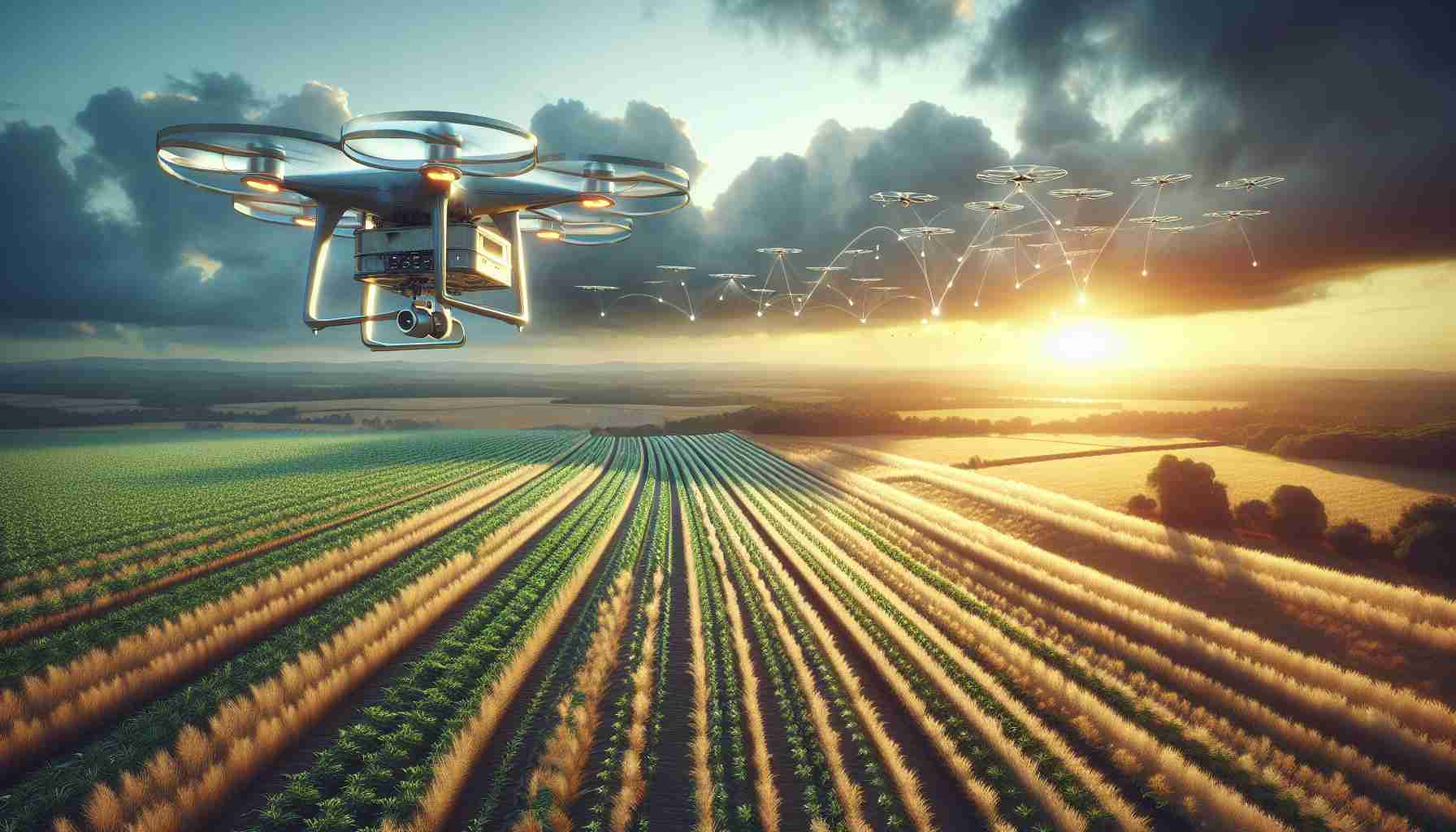In recent years, a groundbreaking shift in agriculture could lead to a massive increase in value. According to a new assessment from McKinsey, global agriculture could see an astounding 500 billion US dollars added to its value through the implementation of advanced technologies such as drone surveillance, automation, and crop monitoring.
The agricultural sector stands on the brink of a technological revolution. With current innovations already at our fingertips, the potential for transformation is immense. Drones equipped with sophisticated cameras and sensors can provide farmers with detailed insights into their crops, allowing for more precise management and care. This technology enables farmers to monitor crop health, evaluate soil conditions, and even optimize irrigation strategies with ease.
Automation is another pivotal element in this transformation, offering promising solutions that streamline farming operations. With the help of automated machinery, labor costs can be significantly reduced while productivity increases. This integration of technology not only improves efficiency but also enhances sustainability practices in agriculture.
With these advancements, the agricultural landscape is poised for a significant change. As we embrace these innovations, the potential for increased yields and economic growth within the sector becomes clearer. The future of farming has arrived, and it’s being driven by technology that is not just innovative but crucial for the sustainability of global agriculture.
The Agricultural Revolution: How Technology is Set to Transform Farming
The agricultural sector is witnessing a major transformation propelled by cutting-edge technologies. According to a recent assessment by McKinsey, the global agriculture industry is on track to add a staggering $500 billion to its value through innovations such as drone surveillance, automation, and advanced crop monitoring. This article explores the latest developments in agricultural technology, their pros and cons, specifications, and future trends.
Key Technologies Transforming Agriculture
1. Drones and Remote Sensing
Drones equipped with high-resolution cameras and various sensors are revolutionizing how farmers monitor their crops. These unmanned aerial vehicles (UAVs) allow for real-time data collection, enabling farmers to gain insights into crop health, soil moisture levels, and pest infestations.
– Pros: Increased efficiency in crop monitoring, reduced time spent on field inspections, and enhanced yield predictions.
– Cons: High initial investment costs and the need for training on drone operation and data interpretation.
2. Automation in Farming
Automated machinery, such as robotic harvesters and seeders, is drastically reducing labor costs while boosting productivity. These systems can perform tasks more quickly and accurately than human laborers, thus minimizing wastage and optimizing resource use.
– Pros: Lower operational costs, higher efficiency, and the ability to work in challenging weather conditions.
– Cons: Dependence on technology, potential job loss in rural communities, and maintenance challenges.
Specifications and Compatibility
Modern agricultural tools utilize technologies like GPS, AI, and machine learning for precise operations. For instance, drone specifications might include:
– Flight time: Up to 30 minutes
– Camera resolution: 20 MP
– Sensor capabilities: Multispectral for crop health analysis
It’s essential for these technologies to integrate seamlessly with existing farming operations to maximize their effectiveness.
Future Trends and Predictions
As we move towards 2030, the adoption of tech in agriculture is expected to rise significantly. The demand for technology-driven solutions is attributed to the growing population and the need for sustainable farming practices. The market for smart agriculture is projected to reach $20 billion by 2025.
Innovations in Sustainability Practices
Advanced technology in agriculture is not only about enhancing productivity; it also plays a crucial role in promoting sustainability. Precision farming, using data analytics, helps in making informed decisions regarding the use of water and fertilizers, leading to reduced environmental impact.
Limitations and Challenges
While the integration of technology into farming presents numerous advantages, several challenges must be addressed:
1. Access to Technology: Smaller farms may struggle to afford advanced equipment, resulting in a gap between large and small-scale farmers.
2. Cybersecurity: The use of connected devices in farming opens up vulnerabilities to cyberattacks, which can jeopardize sensitive agricultural data.
3. Training Needs: Farmers may require extensive training to effectively implement and maintain new technology, which can be resource-intensive.
Conclusion
The agricultural sector stands at the forefront of a technological revolution that could redefine food production and sustainability practices. With the investment in technologies such as drones and automation, the potential for increased productivity and economic growth is immense. As we progress, it’s essential to address the challenges and ensure that all farmers can partake in this journey towards a more innovative and sustainable agricultural future.
For further insights into advancements in agriculture technology, visit McKinsey & Company.
